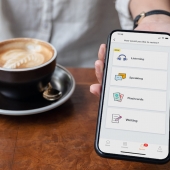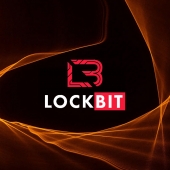To those outside the joint sales or convenience store stocking realm, the Hara brand might be unfamiliar. The company specializes in crafting ready-to-fill, pre-rolled papers complete with a filter tip.
Gerber, perched on an office couch amid glass bongs, says, “We like to think of ourselves as the quiet powerhouse supporting numerous enterprises,” sharing this from the company’s bustling Las Vegas base.
Operating 14 factories near Delhi, India, Hara churns out a staggering 100 million cones each month, adding up to over 1.2 billion annually. These cones are shipped to the United States and Europe, finding their way into thousands of smoke and convenience stores, as well as dispensaries and various cannabis labels. Hara’s clientele, including cannabis operators, pack these cones with ground cannabis, transforming simple paper tubes into ready-to-smoke joints.
Notable cannabis entities like Chicago’s Verano Holdings, using Hara cones for their Swift Lifts, and Massachusetts’ Curaleaf, for their in-house joints and other brands such as Grassroots and BNoble, are among Hara's customers. Leading independent joint names like Jeeter and Stiiizy also source their cones from Hara. Moreover, Republic Brands—the largest rolling paper company globally, with brands like OCB, E-Z Wider, and Zig-Zag—procures its cones from Hara. This network contributes to a lucrative business, with Forbes approximating Hara's annual revenue at about $75 million. Hara commands a significant slice, approximately 30%, of the cone market, which predominantly operates out of Malaysia, Indonesia, and India, and approximates a production of 350 million cones monthly.
- Don Levin, the magnate behind rolling paper giants like Zig-Zag, E-Z Wider, and OCB, and the CEO of Republic Brands, typically opts for complete control over his supply chain. This leans into his purchase of two French paper mills from fellow billionaire Vincent Bolloré in 2000, ensuring his own production of rolling papers.
However, the intricacies of cone manufacturing, which require manual assembly across Asian factories, deterred the founder of D.R.L. Enterprises from internalizing this process. Instead, Levin, witnessing the efficiency and reliability of the young entrepreneurs at Hara, chose to provide them with rolls of his premium French paper. In Hara's hands, these bobbins are transformed into cones within 30 seconds—a testament to their skill and speed. Now, Republic Brands sources 20 million cones monthly from Hara.
Levin, who has been in the rolling paper sector since 1969, admits the expertise involved, saying, “They've outperformed everyone in this craft for ages. It's all done by hand in massive workshops. Understanding and navigating the complexities of manufacturing in India—that's Hara's unique expertise."
Gerber, meanwhile, is upfront about the unsung role of Hara in the cannabis industry. Hara doesn’t touch the plant but is an essential part of the pre-rolled joint market, which according to BDSA data, represents about 11% of the $26 billion legal U.S. cannabis sales in 2022. Pre-rolled joints have also seen a significant growth spurt, with a 12% increase in sales from the third quarter of 2022 to the same period in 2023.
Hara's leading position in the cone market emerged almost serendipitously. Ravjot “RJ” Bhasin, a 32-year-old devout Sikh hailing from Long Island with familial ties to a large textile business in India, and Gerber, a Maryland native, became fast friends when they were paired up as roommates during their junior year at George Washington University in Washington, D.C. The pivotal moment came on New Year’s Eve 2014, after a party in Manhattan. While at Bhasin's Syosset home, feasting on McDonald’s, an entrepreneurial spark led them to their initial business idea.
Gerber, energized by the moment, proposed, “Imagine a Birchbox but for cannabis enthusiasts. Trust me, let's give this a shot.”
Fast forward a year, and they had expanded their product line to include custom-made glass pieces and themed collections. Hemper now flaunts its own brands, like the ashtray company Goody and air filter producer Smoke Fiends, delighting 30,000 monthly subscribers and raking in an estimated $15 million a year. Hemper also distributes its boxes and a wide array of smoking accessories to retail chains such as Smoker Friendly and Wild Bill’s.
The real gold rush for the Hara team occurred in 2017. During a desperate time for Nick Kovacevich, CEO of the cannabis packaging giant KushCo Holdings, his usual cone supplier had failed to complete a $7 million order. In a discussion full of hope, Kovacevich reached out to Gerber, inquiring if Hara could possibly take on cone manufacturing. Gerber was assured that if they delivered, they could secure Kovacevich's future orders.
Gerber promptly called Bhasin, who was managing their glassware operations in India, with a sense of urgency, “We have an incredible chance on our hands,” he recounted. "We need to work out how to craft thousands of paper cones efficiently."
Bhasin's search for production facilities took him to numerous sites around Delhi, where he encountered shocking practices, including child labor on a rooftop and a small shed where workers used saliva for glue. "Some of the conditions were horrible," Bhasin remembers. He promptly informed Bryan, "I think we can manage this on our own."
By July 2018, fertilized by a $500,000 advance from KushCo, Bhasin launched Hara's premier factory, ensuring a workforce of adults under hygienic conditions, and began mass production of cones. Initially, they purchased paper from Delfort, another global leader in rolling papers before also sourcing from Schweitzer-Mauduit International's mills in France.
The exclusive agreement with KushCo was soon outweighed by Hara's production capabilities. "We went from producing five million cones each month," Gerber states, “Then to 10 million, and eventually 20 million."
By September 2019, Hara had secured a substantial client: Levin's Republic Brands. In the following two years, it won over other major rolling paper companies and pre-roll joint manufacturers, including Jeeter, as well as large-scale cannabis firms like Curaleaf and Verano. Hara also diversified its product base to include distinctive joints and cones utilizing unconventional materials such as hemp, tea leaves, goji berry, sage, cocoa, hibiscus, eucalyptus, complemented by tips made of glass, wood, or ceramic.
Back at Gerber's Las Vegas office, the air filter's hum comes to a stop. He uses it when he enjoys a dab of rosin, a potent THC oil he isn't allergic to, from one of his company's bongs after work. "We rigorously test every product we make," he claims.
The pre-roll cone industry, initiated by two Dutch brothers in 1994 and introduced to Amsterdam's coffee shops, isn't a new market niche. Despite existing competition, Hara's dynamic approach swiftly positioned them as a primary supplier for America's ever-growing demand for pre-rolls. "We've built a reputation for being incredibly resourceful," Gerber shares proudly. "And that's led us to become the largest in the sector."


 1
1






